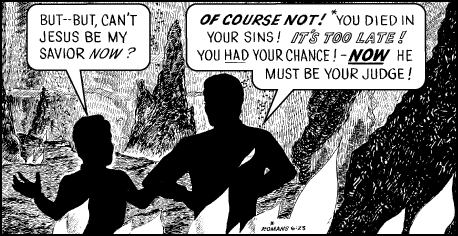Playwright David Mamet, from the essay “Realism” in Writing in Restaurants:
In general, each facet of every production must be weighed and understood solely on the basis of its interrelationship to the other elements; on its service or lack of service to the meaning, the action of the play.
A chair is not per se truthful or untruthful. That one may say, “Yes, but it is a chair, an actual chair, people sit on it and I found it in a cafeteria, therefore it belongs in this play about a cafeteria,” is beside the point. Why was that particular chair chosen? Just as that particular chair said something about the cafeteria in the cafeteria (its concern for looks over comfort, for economy over durability, etc.), so that chair, on stage, will say something about the play; so the question is: What do you, the theatrical director, wish to say about the play?
… So what if the play is set in a cafeteria? … Our question is why is the play set in a cafeteria, what does it mean that the play is set in a cafeteria, and what aspect of this cafeteria is important to the meaning of the play. …
… Everything which does not put forward the meaning of the play impedes the meaning of the play. To do too much or too little is to mitigate and weaken the meaning. The acting, the design, the direction should all consist only of what bare minimum necessary to put forward the action. Anything else is embellishment.
Theologian Eugene Peterson, responding to the latest offensive from Team Hell:
We should read the entire Bible in terms of what drives toward Christ. Everything has to be interpreted through Christ. Well, if you do that, you’re going to end up with this religion of grace and forgiveness. The only people Jesus threatens are the Pharisees. But everybody else gets pretty generous treatment. There’s very little Christ, very little Jesus, in these people who are fighting Rob Bell.
Much of the dispute between the defenders of Hell and their dissenters is difficult to address, let alone resolve, because the two sides are not reading the same Bible. The volumes are identical, but the ways they approach the book are incompatible.
The result is a dispute that falls several steps short of disagreement. The nature and the locus of the disagreement remains hidden, prompting confusion, anger and fear — or, in Al Mohler’s case, an extravagantly feigned pose of supercilious lamentation.
We can see the outlines of the problem in Team Hell’s response whenever Rob Bell or Brian McLaren or C.S. Lewis makes a statement about the character of God. Team Hell is highly suspicious of such talk. They grasp just enough of what Bell et. al. are saying to perceive the seriousness of the threat to their position, but not quite enough to really hear and evaluate what is being said.
And so they leap to the conclusion that this is some bit of “liberal” trickery — some tactic for evading the clear truths clearly revealed in simple, propositional statements, which constitute the clearest and highest forms of truth. Thus we get things like the following, from Mohler, arguing that Rob Bell is just like a 1920s “liberal”:*
They argued that the doctrine of hell, though clearly revealed in the Bible, slandered God’s character. They offered proposed evasions of the Bible’s teachings, revisions of the doctrine, and the rejection of what the church had affirmed throughout its long history.**
For Mohler, as for most of Team Hell, we can see that there are two distinct categories. On the one hand there is what is “clearly revealed in the Bible … teachings … doctrine.” And on the other hand there’s this evasive, fuzzy-wuzzy, extra-biblical, anti-biblical notion of “the character of God.”
And with that preconception stuck in his head, he cannot accept or imagine or even hear what is actually being said to him. He cannot accept or imagine or hear the argument that the character of God as clearly revealed in the Bible is incompatible and irreconcilable with his fondness for Hell. The character of God is a “teaching” or “doctrine,” but it’s also much more than that. It is, in Mamet’s terms, the meaning of the play. Anything that contradicts it does not belong on stage.
That’s how Rob Bell reads the Bible. And that’s how Eugene Peterson reads the Bible. And that’s how I read the Bible. “Everything has to be interpreted through Christ,” Peterson said.
That’s also a Pauline approach to the Bible. It’s how Paul read the scriptures himself, and it’s how he wrote his own letters to the early believers, letters which we have since canonized as our own scriptures. The evangelists who wrote the Gospels of the New Testament wrote them this way too. And they tried to live that way too.
But this is not how Team Hell reads the Bible. They regard the idea of reading the entire Bible as “driving toward” any one point as a dangerous approach that prioritizes some passages over others. That opens the door to all sorts of “evasions” and “revisions.” For them every word in the Bible is sacred. And thus every word in the Bible is equally sacred. To allow for some grand theme or interpretive scheme or some larger picture of the character of God would be to challenge that equal sacredness of every single word.
And that would be dangerous. Reckless. It’d be like, I don’t know, imagine there’s a pearl merchant and he’s got all these different little pearls, each of which is valuable and important. It would be foolish for him to sell all those little sacred pearls in exchange for one big pearl of great price. You do something like that — you go looking for the big picture, the grand interpretive scheme, and you might wind up getting the little details wrong. Better to concentrate on all the little details. Because, remember, if you get too many of those little details wrong, God will send you to Hell where you’ll suffer conscious torment for eternity.
One more story that I’ve told before, but it underscores what Mamet and Stanislavsky and Peterson and Paul were all getting at. It illustrates the thing that Team Hell just doesn’t understand about the way Team Love reads the Bible:
So this guy is walking through Chartres about 800 years ago and he comes across a man hauling buckets of stones. “What are you doing?” he asks the man.
“Breaking my back to feed my family,” the man says. “Same thing I do every day.”
A bit further along the guy meets another man who is hard at work with a chisel. “What are you doing?” he asks the second man.
“I’m making rectangular blocks, two feet long, one foot high, one foot deep,” the man says. “Same thing I do every day.”
Then an old woman with a bucket and broom arrives to sweep up the dust and debris the carver was making. “What are you doing? the guy asks the woman.
“Same thing I do every day,” the old woman says. “I’m building a glorious cathedral, a work of art that will stand for centuries.”
– – – – – – – – – – – –
* The fundamentalist-modernist controversy played out in the 1920s here in America, ending with the fundamentalists’ withdrawal, for decades, from public life. Ever since the fundamentalists have re-emerged — as Neo-evangelicals, or evangelicals, or Republicans — they have struggled to make up for all that they missed in the world during the main part of the 20th century. One consequence of this is that whenever they encounter someone who disagrees with them, their first thought is of the last argument they remember having. Thus they tend to believe that anyone disagreeing with them must be some kind of modernist theologian from the 1920s. Hence the endless variations of something like this exchange: “About 4.5 billion years, why do you ask?” “Bultmann!”
** Yes, here you have a sola-scriptura, anti-traditional Southern Baptist American evangelical suddenly basing his argument on “what the church had affirmed throughout its long history.” It is kind of fun to re-read Mohler’s rant imagining it as a defense of the papacy rather than a defense of the doctrine of Hell — you only need to change a few words here and there to make it work for one medieval embellishment rather than the other. And of course the biblical case for the papacy is just as strong.
















